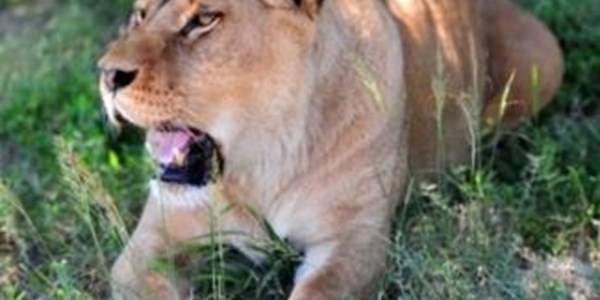Africa News
Zim authorities likely to battle prosecution of Cecil's hunters─── 14:42 Thu, 13 Aug 2015

Harare - It would be “very difficult” to prove charges that Zimbabwe’s famous lion Cecil was illegally killed by an American hunter last month, several lawyers said.
Walter Palmer, 55, a dentist from Minnesota who shot Cecil on farm land near the Hwange National Park, must know by now, diplomatic sources say, that Zimbabwe has little chance of forcing his extradition to Harare.
However, that is not what the Zimbabwean government believes. At a press conference, new environment minister Oppah Muchinguri said that she understood the process was underway to extradite Palmer from the US.
“Unfortunately, it was too late to apprehend the foreign poacher, as he had already absconded to his country of origin,” she was quoted as saying by The Associated Press.
Several lawyers say that the extradition treaty between the two countries still needed to be incorporated into law in Zimbabwe.
In addition, they say the maximum penalty for illegal hunting in Zimbabwe is too small for US extradition laws. The worst penalty for an illegal hunt in Zimbabwe is a fine of about R4,000, or six months in prison. The US says it will only agree to extradition if a citizen is sentenced to a year or more.
Since the international outcry at Cecil’s death, two Zimbabwean professional hunters have been charged with allegations that they were part of illegal lion hunts with foreigners.
Zimbabwean Theo Bronkhorst, 52, was charged with organising Palmer’s hunt.
Police have still not managed to craft charges to put to a third man, Honest Ndlovu, who occupies the land where Cecil was killed.
Professional hunters and farmers gathered last week in Bulawayo, the country’s second largest city, to discuss the future of hunting. One topic of conversation was about sentences for offences against wildlife.
They recalled that a well-known Zimbabwe hunter was recently found guilty of an illegal hunt about 200 km south of Bulawayo. The hunter and his client focused their attention and weapons on a leopard for which they had a hunting permit. They were also using dogs as part of the chase.
The leopard fled from its home turf onto a privately-owned farm where it was shot and died. But the permit for the leopard hunt was not for the farm on which it died. The farmer was furious and reported the hunter to the Parks Authority.
“The hunter who organised this was found guilty as charged and was fined about US$200 and his hunting license was suspended for 30 days,” a hunter who asked not to be indentified, said.
“Leopards are classified as an endangered species, while lions are not.”
Bronkhorst claims he had a permit for his client Palmer to kill one large male lion.
Before being charged, Bronkhorst said that his client had followed the letter of the law which was to pay for the hunt. It was his obligation, as part of the deal, to ensure all permits were in place and map out various sites where they might find a lion.
He said, in accordance with regulations, Palmer sent US$61,000 (not $55,000 as widely reported) for the hunt to the Reserve Bank of Zimbabwe before his arrival in Zimbabwe.
Lawyers say that according to hunting laws in the Parks and Wildlife Act, Bronkhorst and Palmer broke no law by hunting at night, nor was it illegal to drag bait through the veld to attract animals closer to hunters. It was not illegal to use a bow and arrow, as Palmer did when he shot Cecil, wounding him on July 1, and again when he shot him dead the following morning.
So, lawyers said, prosecutors would have a tough job to make the charges of an illegal hunt stick.
Some predict that the State may even choose to withdraw charges before the trial in the Hwange Magistrate’s Court on September 28.
Other professionals in the wildlife industry speculate that Bronkhorst may try to force the State to withdraw charges by going to court himself.
The Parks and Wildlife Management Authority is also in sticky legal waters because of mixed messages about new restrictions affecting hunting.
In reaction to the international outcry at Cecil’s death, it banned hunting of lion, leopard and elephant.
Six days later that ban was lifted but it left in place a temporary ban on all hunting in five areas near the boundary with Hwange National Park.
It also said any individual “involved in illegal hunting actives were banned from hunting (in Zimbabwe) for life. Their actions border on economic sabotage”.
In some cases it said it would demand that hunters take government rangers with them on hunts to monitor their compliance with the law.
But those “bans” and new rules are not regulations, they are “no more then statements,” one lawyer in Harare said.
However, a source close the Parks Authority differed with this interpretation.
“This cannot be enforced. But it is safe to expect that there will be no confrontation,” he said. “Who is going to challenge this?”
Many stakeholders in hunting and wildlife tourism are busy consulting and drawing up a set of reforms to the law, particularly in connection with ethics in hunting which they way they will present to the government by month end.
Meanwhile the furore over Cecil’s death rages on internationally, especially in the US where Democratic Senator Bob Menendez has introduced a bill which would ban the import into the US of trophies of endangered animals. This would apparently cover lions on the grounds that the US wildlife authorities are considering putting it on their endangered species list.
Even South African President Jacob Zuma got caught up in the row this week when he was asked about Cecil at a media briefing where he reported on the progress which the government was making in its commitments in his State of the Nation address this year.
He was sharply criticised by some conservationists for making light of Cecil’s death.
“What it sounds like from a distance [is] that the hunter did not know that Cecil was so popular, just saw a lion, and killed a lion, and it’s Cecil, and Cecil is very well loved and it caused a problem, because everyone wants to go and see Cecil. I think it’s just an incident,” Zuma said at the time.
“Really, I didn’t think it could become such a big issue, but it is a big issue because Cecil was loved. But I think maybe that the fellow did not know. And he just took a nice lion and it was Cecil.”
ANA














